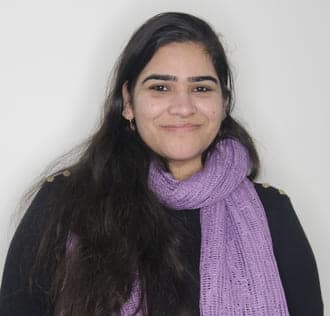Education and Character Building


Many people, while discussing about the role of education in personality development and character building, tend to give a lot of emphasis to early education received in childhood. There is no denying that early education indeed acts as a stepping stone when it comes to character building and personality development. However, what these people fail to realise is that learning is a lifelong process, and therefore, our personalities keep evolving as we learn through our experiences. It is therefore important to choose not just a good school for your ward, but also a good university where adequate emphasis is given to character building and personality development.
One’s personality comprises of the individual characteristics, cultural beliefs and values possessed by one, which one acquires through one’s lived experiences. Jeroen Borghuis et al. (2018), in the abstract of their research paper on personality trait changes in middle aged mothers, have also highlighted how “recurrent daily experiences can affect personality traits.” Furthermore, they also state that “positive affective and interpersonal daily experiences contribute to positive personality trait changes in middle adulthood.” If positive experiences in daily life can have an impact on middle aged adults, one can very well imagine the extent to which they affect young adults. Hence, it is imperative that universities should try to create an environment wherein students can have positive experiences on a day-to-day basis.
We at The NorthCap University, one of the best private universities in Haryana, provide our students with a positive learning environment. Realising the importance of experiential learning, many of the courses offered by the university have a strong experiential component. The courses on offer for BA (Hons.) English programme have been especially designed to impart lessons in respect, empathy and integrity. According to Mahatma Gandhi, education should be about “drawing out of the best in child’s and man’s body, mind and spirit. Literacy is neither the beginning nor the end of education. This is only a means through which man or woman can be educated” (qtd. in Tandon). The man India treats as the ‘Father of the Nation’ also believed that only people with fully developed characters can hope to attain Truth or God. According to the education scheme proposed by him, education is not just a channel for imparting knowledge about facts; it plays a very crucial role in imparting wisdom about human behaviour and life, thus empowering students to take on the role of being an active, responsible member of the civil society. We at NCU India consider the role played by young adults in changing the lives of those less fortunate them to be very important, and hence, taking a leaf out of Gandhi’s book, encourage our students to exert themselves for community service.
In recent times, students are forced to join the rat race of scoring higher marks without being provided with any explanation as to what these higher marks signify. Neither are they offered any discussions on the true purpose of education: character building. Since most institutions for higher education in the present time are only focused on imparting professional skills that will help the students enrolled with them to secure a job, they often fail to impart crucial life skills to them. In contrast to such institutions, NCU chooses to impart an education that covers all bases. Apart from offering programme-specific courses, NCU ensures that courses like “Human Values and Professional Ethics” and “Innovative Thinking and Positivity” are also made part of the curriculum.
As far as the syllabus of BA (Hons.) English (offered by the Centre for Language Learning, The NorthCap University) is concerned, it includes several texts that allow the faculty to discuss social issues and the challenges faced by the marginalised sections of societies. Such discussions foster an understanding of these issues and also cultivate an attitude of respect towards those who are underprivileged and dispossessed. They help our students to realise each life is worthy of being treated with dignity, and must be valued.
Indian youth is a force to reckon with in the present times, as they possess the power to change the course of the future. According to UNFPA India website:
“India has its largest ever adolescent and youth population. According to UNFPA projections, India will continue to have one of the youngest populations in the world till 2030. India is experiencing a demographic window of opportunity, a “youth bulge” that will last till 2025. India’s youth face several development challenges, including access to education, gainful employment, gender inequality, child marriage, youth-friendly health services and adolescent pregnancy. Yet, with investments in their participation and leadership, young people can transform the social and economic fortunes of the country.”
The youth of India can indeed change the country’s fate by fighting for progress and standing up in favour of innovation and change. They can reshape the world and redefine global politics by arguing in favour of change and becoming voices for social justice and sustainability. We at CLL genuinely believe that our students will also become a part of this larger movement and will aid in the development and progress of the nation through their efforts. It is precisely due to this reason that we ensure that when our students walk out of the university and into the real world, they are in possession of a value-based education that will help them make a difference.
Works Cited
Borghuis, J., Denissen, J. J. A., Sijtsma, K., Branje, S., Meeus, W. H. J., & Bleidorn, W. (2018). “Positive Daily Experiences Are Associated with Personality Trait Changes in Middle–Aged Mothers”. European Journal of Personality, 32(6), 672-689. https://doi.org/10.1002/per.2178
Tandon, Shruti.“Gandhi’s Education Thoughts”. https://www.mkgandhi.org/articles/Gandhis-educational-thoughts.html
UNFPA India. “Adolescents and Youth”. https://india.unfpa.org/en/topics/adolescents-and-youth-8
Authored By

Dr. Gouri Kapoor
Assistant Professor, Centre for Language Learning
The NorthCap University, Gurugram
LinkedIn ID: https://www.linkedin.com/in/dr-gouri-kapoor-37259714b/
